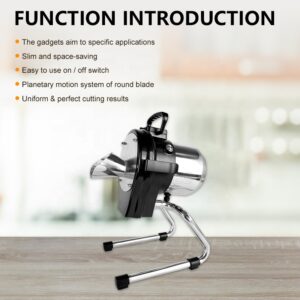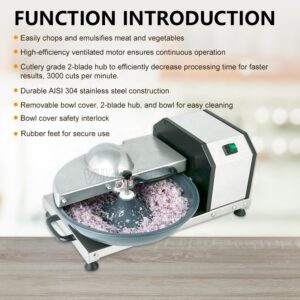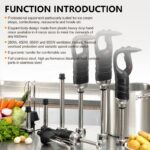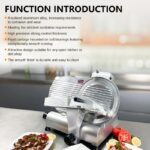Introduction: In the fast-paced world of the foodservice industry, commercial kitchen equipment plays a vital role in ensuring the smooth operation and success of a restaurant or catering business. From refrigerators and ovens to dishwashers and fryers, these specialized appliances and tools are specifically designed to meet the demands of a commercial kitchen environment. This article explores the advantages of using commercial kitchen equipment and how it contributes to the efficiency and productivity of foodservice establishments.
1. Durability and Reliability: Commercial kitchen equipment is built to withstand heavy usage and the demands of a busy kitchen. Unlike domestic appliances, which are designed for occasional use, commercial-grade equipment can endure long hours of operation without compromising on performance. The materials used in their construction, such as stainless steel, are robust and resistant to corrosion, ensuring longevity. This durability and reliability make commercial equipment a worthwhile investment for businesses seeking equipment that will withstand the test of time.
2. Enhanced Efficiency: Efficiency is crucial in a commercial kitchen setting, where time is of the essence. Commercial kitchen equipment is engineered to improve workflow and streamline food preparation processes. For example, advanced cooking equipment such as combi-ovens can perform multiple cooking functions, saving space and time by eliminating the need for separate appliances. High-capacity refrigerators and freezers allow for effective food storage and stock management, reducing waste and maximizing efficiency.
3. Safety Features: Commercial kitchen equipment often incorporates additional safety features to protect kitchen staff and guests. For instance, ovens and deep fryers have built-in temperature controls and automatic shutoff mechanisms, preventing overheating and potential accidents. Dishwashers utilize high-temperature sanitization cycles to ensure proper cleanliness, minimizing the risk of foodborne illnesses. These safety features not only protect individuals but also uphold sanitary standards required by health and safety regulations.
4. Customization and Adaptability: One of the key advantages of commercial kitchen equipment is its adaptability to diverse kitchen spaces and operational needs. They come in various sizes, configurations, and layouts to maximize efficiency and space utilization. Customizable options allow businesses to tailor equipment to their unique requirements, including specialized cooking methods or ingredients. This adaptability enables chefs to exercise creativity and flexibility in menu planning, catering to the preferences and dietary needs of their customers.
5. Consistency in Quality: Commercial kitchen equipment ensures consistent and reliable results in food preparation. Temperature and cooking time control features guarantee the uniformity of products, allowing chefs to reproduce their signature dishes consistently. Additionally, specialized equipment, such as commercial mixers or sous vide machines, provide precise control over processes, resulting in enhanced flavors, textures, and presentation.
Conclusion: Commercial kitchen equipment’s durability, efficiency, safety features, adaptability, and consistency make it an essential investment for businesses in the foodservice industry. These specialized appliances and tools can withstand the rigors of a commercial kitchen while improving overall productivity and success. By investing in high-quality commercial kitchen equipment, foodservice establishments can elevate their culinary capabilities, catering to customer demands, and ultimately thrive in a highly competitive industry.







 Immersion blender
Immersion blender Meat slicer
Meat slicer